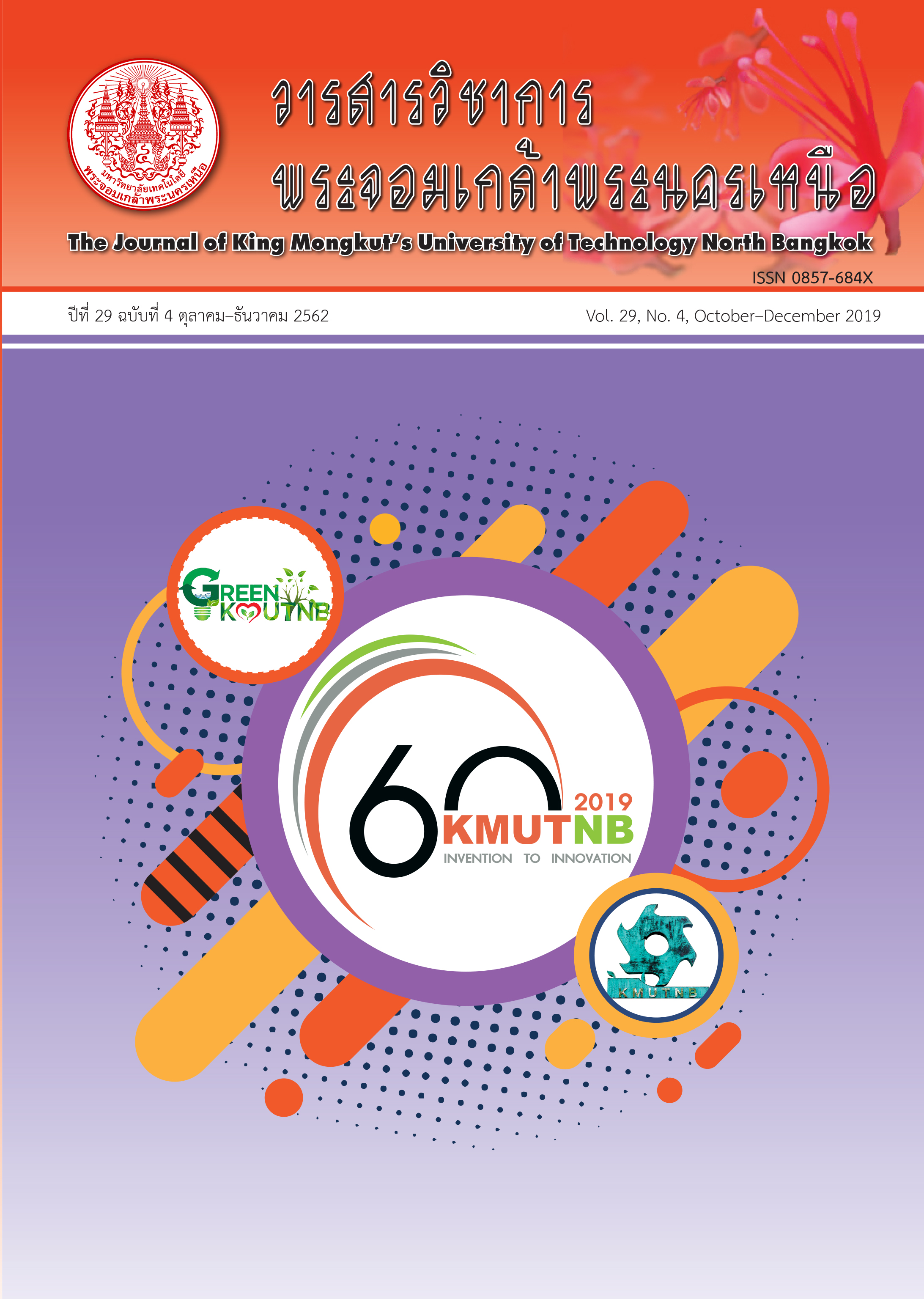Potential Development Model for Quality Control Personnel of Boiler Manufacturer
Main Article Content
Abstract
The purposes of this research are to study the successful factor for quality control personnel in manufacturing of boiler industrials and to develop and evaluate a model of potential developing for quality control personnel in manufacturing of boiler industrials. This research was conducted under the method of quantitative and qualitative research. The qualitative research tool was informal questionnaires used for in-depth interview 10 boiler entrepreneurs and focus group with 15 professionals; a group of academician, a group of boiler entrepreneur and a group of Human Resources expert. The other tool was quantitative research using questionnaires which were designed for collecting primary data from 400 boiler entrepreneurs. The research statistics resulted in form of percentage, mean, standard deviation, and multiple regression analysis.The results of a model of potential developing for quality control personnel in manufacturing of boiler industrials that consisted of 3 core factors and 18 sub-factors. There are as follows: 1) operational skill consisted of 5 sub-factors; policies on quality control personnel improvement, role and duty of quality control personnel, role and duty of quality control personnel , career progress, team development, attitude for quality control personnel, 2) Managerial role consisted of 6 sub-factors; honesty and ethics on job, coordinate on job,earnestness on job, authority decision on job, compensation and welfare, performance in communicate, 3) knowledge consisted of 7 sub-factors; knowledge on job, continued work experiences, knowledge of boiler regulation and standard, training curriculum, analytic in problem solving, continued personnel improvement, analytical thinking. The results of model development and evaluation from focus group with experts found that Potential Development Model for Quality Control Personnel of Boiler Manufacturer will have been appropriate and possible to adopting various organizations.
Article Details
The articles published are the opinion of the author only. The author is responsible for any legal consequences. That may arise from that article.
References
[2] Safety Technology Bureau, “Training Document: Boiler Supervisor,” Department of Industrial Works, Bangkok, Thailand, 2003 (in Thai).
[3] S. Wongthongdee, Human Resource Development. Bangkok: Chulalongkorn University Press, 2013 (in Thai).
[4] K. Anuroj. (2015, October). Human Resource Development. Bangkok, Thailand [Online]. Avilable: http://www.researchers.in.th
[5] D. Hellriegel, S.E. Jackson, and J.W. Slocum, Management: A Competency-Based Approach, 9th ed. Mason, OH, United States: Cengage Learning, Inc, 2005.
[6] P. Wongsarasri, Human Resource Management, 5th ed. Bangkok: Rajchabhat Suan-Dusit University Book Center, 2009 (in Thai).
[7] H. Wang, A. S. Tsui, and K. R. Xin, “CEO leadership behaviors, organizational performance, and employees’ attitudes,” The Leadership Quarterly, vol. 22, no. 1, pp. 92–105, 2011.
[8] A. Taghipour and Z. K. Dezfuli, “Innovative behaviors: Mediate mechanism of job attitudes,” Procedia Social and Behavioral Sciences, vol. 84, pp. 1617–1621, 2013.
[9] F. Herzberg, B. Mausner, and B. Synderman, The Motivation to Work. New York : JohnWiley and Sons, Inc, 1959.
[10] A. H. Maslow, Motivation and Personality. New York: Harper and Row, 1954.
[11] J. Pinthapataya, S. Yuphong, P. Attavinijtrakarn, and A. Poolkrajang, “Potential model development for chief crew flight attendants of Thailand’s aviation business for competitiveness,” The Journal of King Mongkut's University of Technology North Bangkok, vol. 28, no.1, pp. 217–227, 2018 (in Thai).
[12] Y. Srithammarat, The Personnel Management in Government Unit. Bangkok: Thammasat University, 1998 (in Thai).
[13] I. Nonaka. Management of Knowledge Creation. Tokyo: Nihon Keizai Shinbun-sha, 1990.
[14] L. M. Spencer and S. M. Spencer. Competence at work: Models for Superior Performance. New York: John Wiley & Son, 1993.
[15] P. Jumpasri, “Relationship between work values of supervisor on the viewpoint on salespersons and organizational loyalty: A case study of salespersons in Hafele (Thailand) limited,” M.S. thesis, Department of Humanities, Faculty of applied arts, King Mongkut’s University of Technology North Bangkok, 2013 (in Thai).

